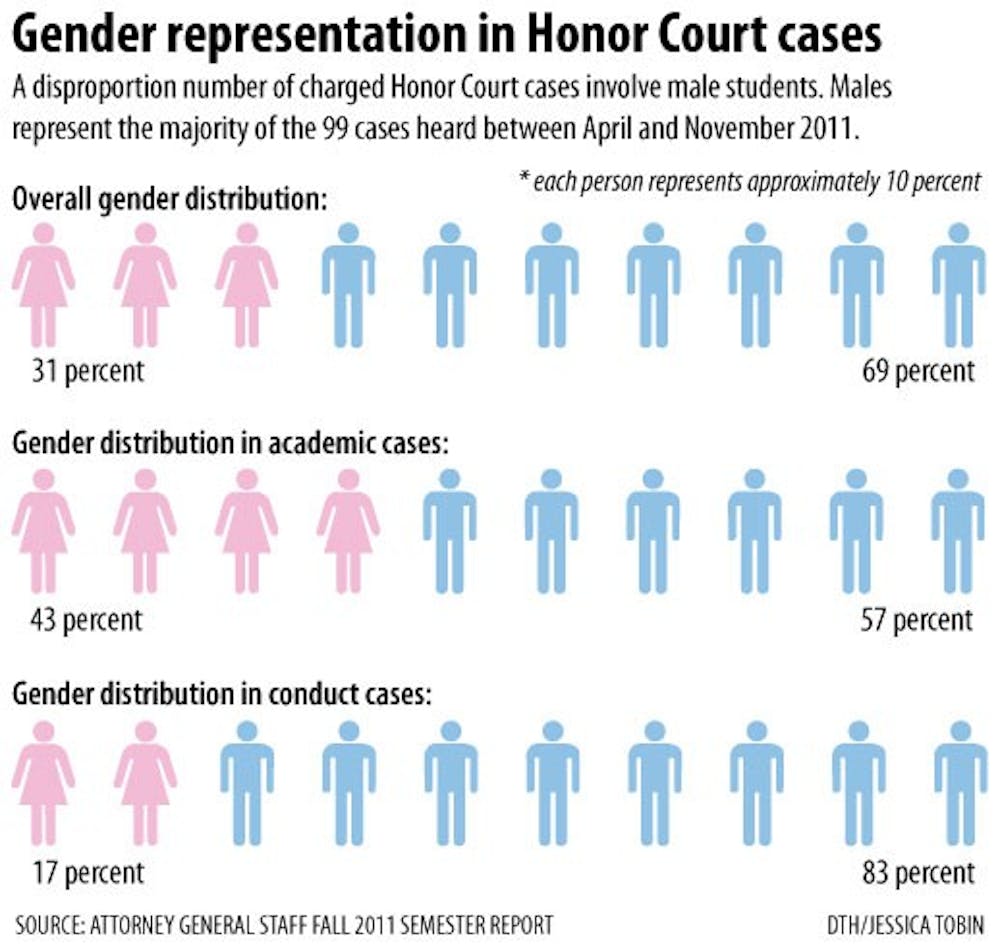Women make up almost 60 percent of the UNC student body, but men are charged in almost 70 percent of Honor Court hearings, according to data released by the student attorney general’s staff.
In both academic and conduct cases, male students were charged in the majority of the 99 cases held between April 4 and Nov. 21 of last year. About 57 percent of those charged in academic cases were male, compared to 83 percent in conduct cases.
The discrepancy between the campus’s gender ratio and the trend in the honor system has some faculty and administrators puzzled.
“We would expect that the breakdown of Honor Court cases would track somewhere close to the demographic breakdown,” said Winston Crisp, vice chancellor for student affairs.
Dean of Students Jonathan Sauls said the statistics of one short time period are not conclusive to a general trend.
“If we were to move a couple of numbers, you could receive widely different percentages,” he said.
But Lisa Pearce, an associate professor of sociology, said in an email that the findings are not surprising — particularly in conduct cases.
“Sociological research has repeatedly found that the strongest predictor of criminal behavior is gender,” Pearce said.
She said the large male representation is due to one of the leading causes of deviant behavior — “strain,” or the negative emotion associated with failing to achieve goals.



